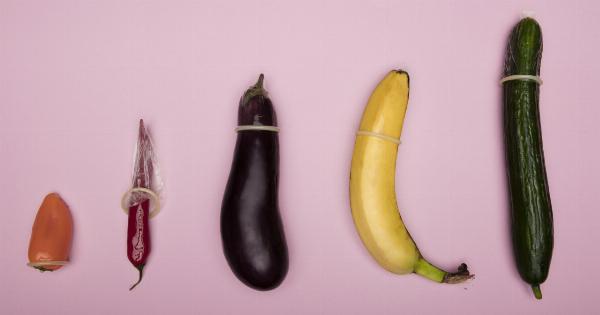Many women have different beliefs about pregnancy. Some believe it is only possible to get pregnant during ovulation while others think it’s not possible to get pregnant during menstruation.
This raises the question: is it possible to get pregnant during your period? The answer is not straightforward. It depends on various factors.
Factors that influence pregnancy during the period
There are several factors that can determine the possibility of pregnancy during menstruation. These factors include:.
Length of menstrual cycle
A menstrual cycle refers to the days between the first day of one period and the first day of the next period. The length of menstrual cycles varies from one woman to another.
In a standard 28-day menstrual cycle, ovulation usually occurs on the 14th day from the first day of menstruation. This means that a woman’s chances of getting pregnant during menstruation are minimal. However, some women have shorter menstrual cycles, while others have longer cycles.
If you have a shorter menstrual cycle, your periods will be more frequent, and you may ovulate closer to your period. This increases your chances of getting pregnant during menstruation.
Length of period
The length of your period can also affect your chances of getting pregnant during menstruation. If your period lasts for seven days or more, there’s a higher likelihood of getting pregnant because you’re closer to ovulating than normal.
Sperm can survive inside the female body for up to five days. Therefore, if you have sex on the last day of your period, and you ovulate within the next five days, you may still get pregnant.
Ovulation time
As stated before, ovulation usually occurs mid-cycle, which means a few days after the period has ended. However, some women with irregular periods may ovulate at any time during their menstrual cycle, including during their period.
If you’re sexually active without contraception, it’s important to track your ovulation time to avoid unwanted pregnancies.
Sperm lifespan
Sperm can live in a woman’s body for up to five days. This means that if you have sex during your period and ovulate within the next five days, the sperm will be available to fertilize the egg.
Therefore, it’s possible to get pregnant during your period if you have sex close to the end of your period, and your ovulation time overlaps with the lifespan of the sperm.
Chances of getting pregnant during your period
According to research, the chances of getting pregnant during your period are minimal. However, it’s still possible to get pregnant during menstruation under certain circumstances. The most fertile time for a woman to get pregnant is during ovulation.
Ovulation typically occurs between days 10 and 14 of a 28-day cycle. If you have sex during ovulation, your chances of getting pregnant are higher.
The chances of getting pregnant during your period depend on various factors, including the length of your menstrual cycle, the length of your period, your ovulation time, and the lifespan of the sperm.
If you have a short menstrual cycle of around 21 days, your period may overlap with your ovulation time. In such cases, there’s a higher likelihood of getting pregnant during your period.
Can you prevent pregnancy during menstruation?
Yes, it’s possible to prevent pregnancy during menstruation. The most effective way of preventing pregnancy is by using contraception, such as condoms, birth control pills, or the morning-after pill.
Condoms are an effective form of contraception because they not only prevent pregnancy but also protect against sexually transmitted infections. Birth control pills are also effective in preventing pregnancy as they prevent ovulation. However, the morning-after pill is not recommended for regular use as it can disrupt the natural menstrual cycle.
Conclusion
In conclusion, it’s possible to get pregnant during your period. However, the chances of getting pregnant during menstruation are minimal, especially if your menstrual cycle is regular.
Nonetheless, if you have an irregular menstrual cycle, the possibility of getting pregnant during your period increases. Therefore, it’s important to use contraception or avoid sex during your period to prevent unwanted pregnancy.






























